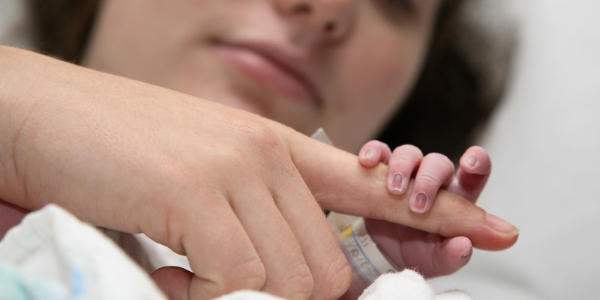In-Vitro Fertilization in Singapore
Low birth rates have been a concern in Singapore for many years now. Declining birth rates combined with an aging population has created worries over a coming ‘silver tsunami’ as the city-state may one day struggle to take care of its elderly citizens as a result of not having enough young working people to fund public programs. Now, imagine if you and your significant other wanted to do your part to address this issue by starting a family and having a child, but you are not able to because of low fertility in one or both of you. In this scenario, the affected would most likely have to revert to a fertility clinic in order to get the aid necessary to conceive a child. Here, we take a look at fertility and in-vitro fertilization (IVF) in Singapore for expats, how it can be received, and how you can address associated costs.
Singapore fertility stats
There are many reasons why people may need to receive fertility treatment like in-vitro fertilization when it comes time for them to add to their family, including endometriosis, tubal disease or obstruction, low sperm count or mobility, premature ovarian failure, polycystic ovarian syndrome, ovarian cysts, fibroids, and much more. The risk factors associated with infertility are the usage of alcohol, drugs, tobacco, age, stress, diet, weight, and other various health problems and treatments. Having said all this, infertility currently affects 15% of Singaporeans, and should not be taken lightly.
When it comes to IVF treatment in a given place, it’s all about the success rates, and Singapore is no different. Statistics provided by the Virtus Fertility Centre in Singapore, which is one of the world’s largest fertility clinics, tout an overall IVF success rate of 55% (based on cumulative clinical pregnancy rate per treatment cycle). Of course, this varies depending on the age of the patient being treated. They reported success rates as high as 64% among women aged 30-34, while this number drops to 53% among 35-39-year-olds, and quickly falls to 22% for women aged 40 or older.
Of course, those results can be found at a private facility, but what about public hospitals in Singapore. Although the available results are from 2002, the following success rates show how much choosing the right facility can affect IVF results:
-
Gleneagles Hospital – 28%
-
National University Hospital – 26%
-
KK Women’s & Children’s Hospital 25%
-
Mount Elizabeth Hospital 25%
-
Thomson Medical Centre 19%
-
Singapore General Hospital 16%
In-Vitro Fertilization costs
As far as public hospitals are concerned, a handful of them handles a large majority of the public sector’s IVF treatments. 30% are performed a KK Women’s and Children’s Hospital, while National University Hospital performs 24%, Thomson Medical Centre 15%, and Singapore General Hospital 13%. Inside of these facilities, the cost of IVF treatment resides within a range of $6,000 and $13,000.
As it turns out, the amount of the treatment was largely dependent on which medical facility the patient was receiving treatment through. Fortunately for citizens of Singapore, the government provides subsidies for all couples in the city if one of them is a citizen, no matter where the other partner is from. However, the amount of subsidy available changes depending on the couple’s legal status. Singapore citizens can be subsidized 75% of their cost up to $6,300 for fresh egg IVF and $1,200 for frozen egg IVF. Those with PR can enjoy a 55% subsidy up to $4,600 for fresh and $900 for frozen. Finally, foreigners married to Singapore citizens in can have access to a 35% IVF subsidy of $3,000 for fresh and $600 for frozen.
These numbers all come from an Assisted Reproduction Technology (ART) co-funding scheme that the Singapore government has had in place since 2013 and covers up to 3 cycles each of fresh and frozen IVF treatment.
For care at private facilities, which is where expats will most likely have to go to receive fertility treatment in Singapore, costs for a single round of treatment can run as high as $16,000.
As you can see from the above information, while it’s nice that foreigners married to citizens in Singapore may be eligible for some government assistance for fertility treatment, expat couples are not so fortunate. This will come as no surprise to transplants in Singapore that have dealt with medical care here before, as, in most cases, people new to the city-state will not have access to public health subsidies or schemes such as the MediSave. Considering this, as well as the fact that IVF treatment can commonly involve multiple rounds of treatment to be successful, if at all, it is a good idea to obtain private health insurance that can address the potential costs of IVF treatment, because costs can stack up quickly.
In terms of insurance coverage for In-Vitro Fertilization in Singapore, in most cases, the options are very limited. To learn more about your IVF insurance coverage options, as well as coverage for newborn children born as a result of IVF, download our IVF in Singapore Guide, or get in touch with Pacific Prime Singapore today. Not only can they answer all of your questions about this and other health insurance plans, but they can also provide you with free plan comparisons and price quotations.
- Your Guide to Singapore Work Permits, S Pass, and Employment Pass (Updated 2024) - March 18, 2024
- Dermatological Care and Your Private Health Insurance in Singapore - December 1, 2023
- Thalassemia in Singapore: Everything You Need to Know - November 10, 2023






Comments
1 Comment
[…] we all know that there are options available to assist couples with reproduction, the entire In-Vitro Fertilization (IVF) process can be both exhausting and potentially very expensive. However, after going through […]
Comments for this post are closed.